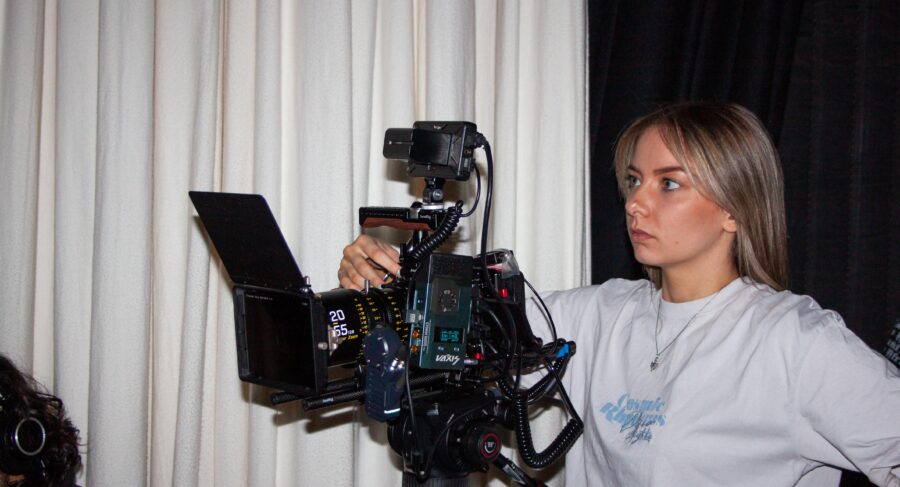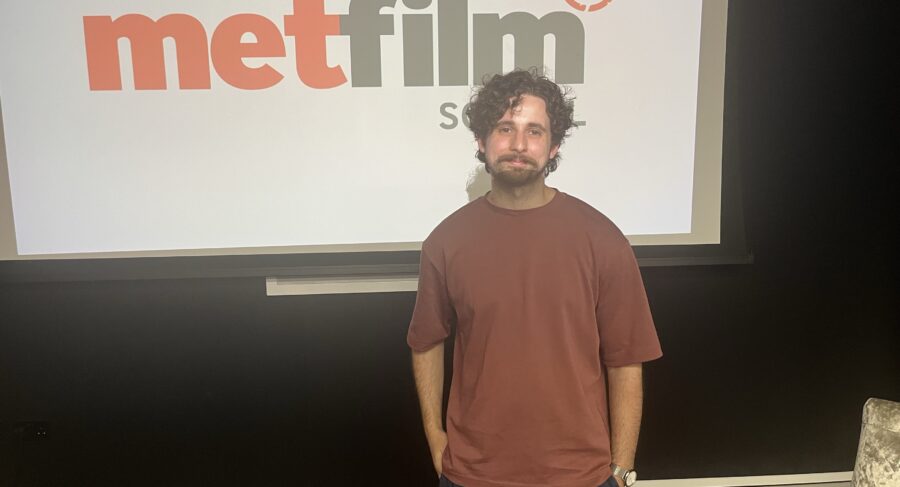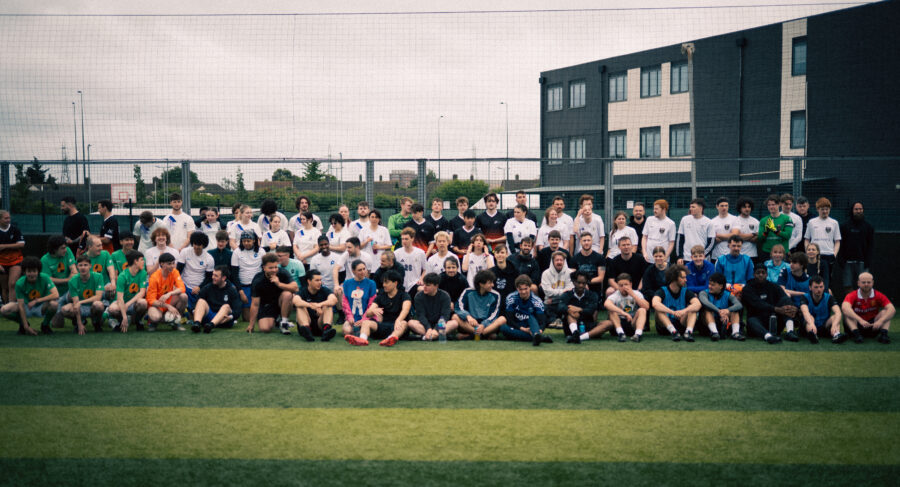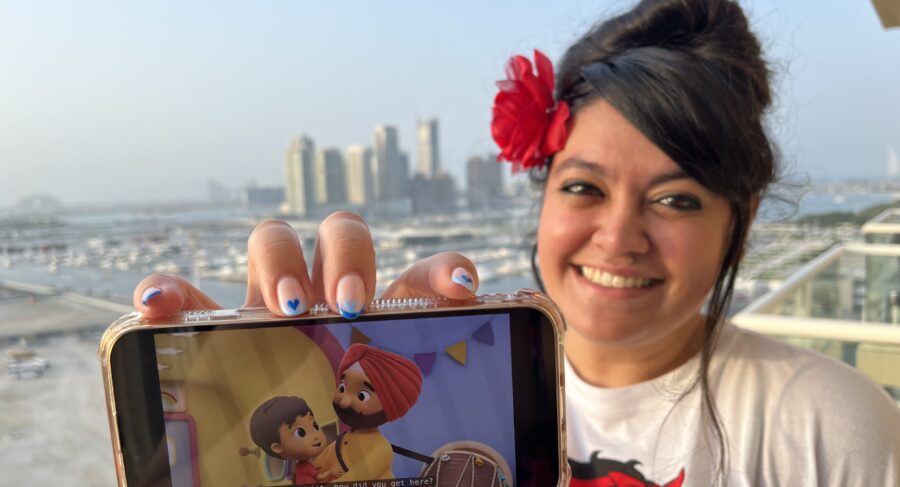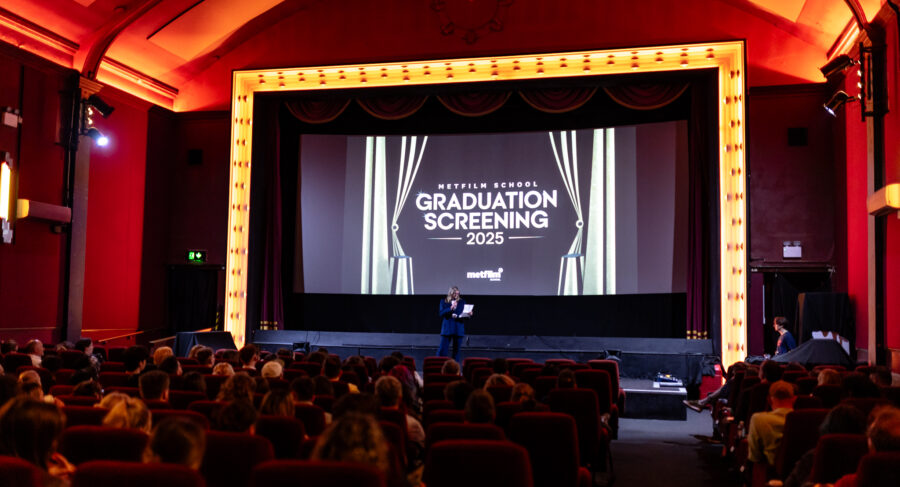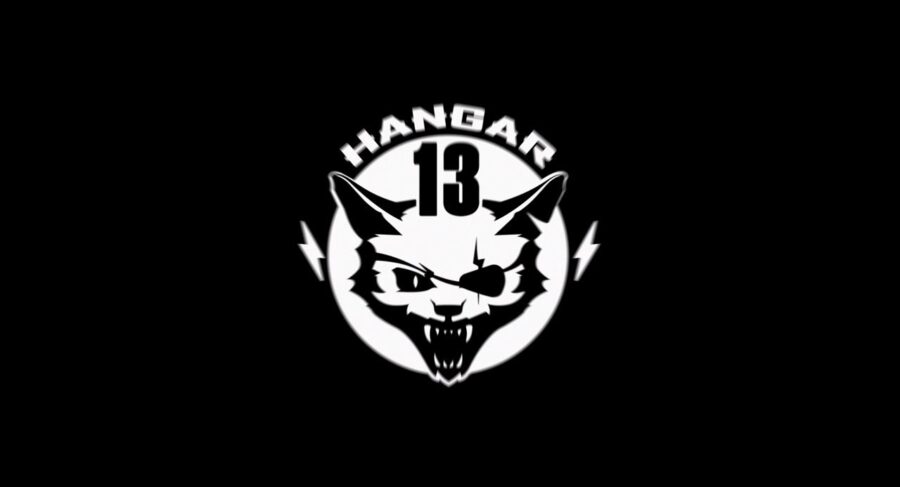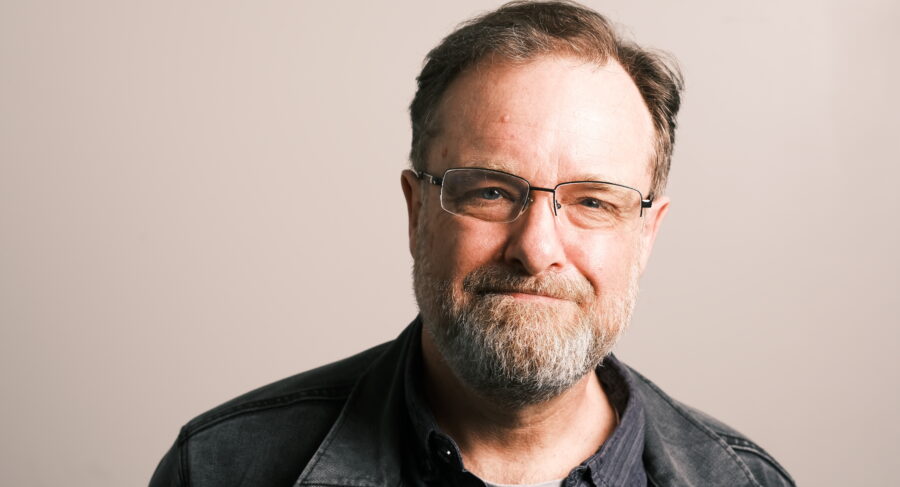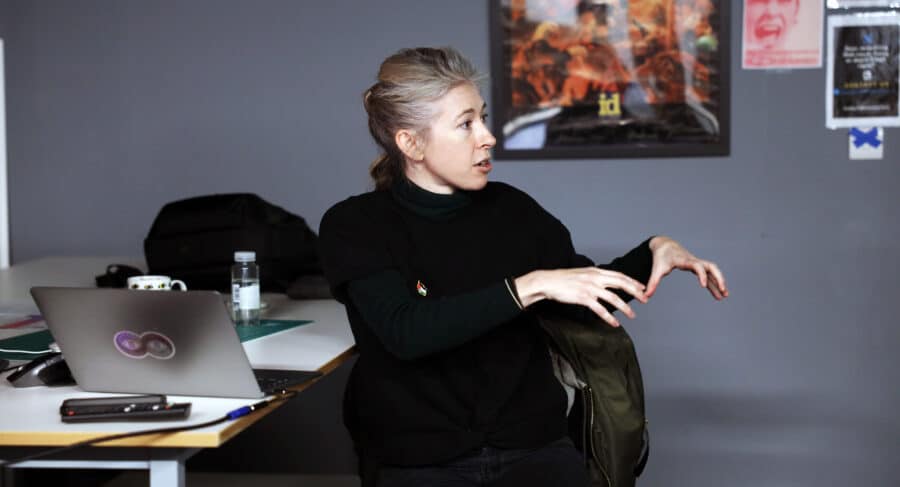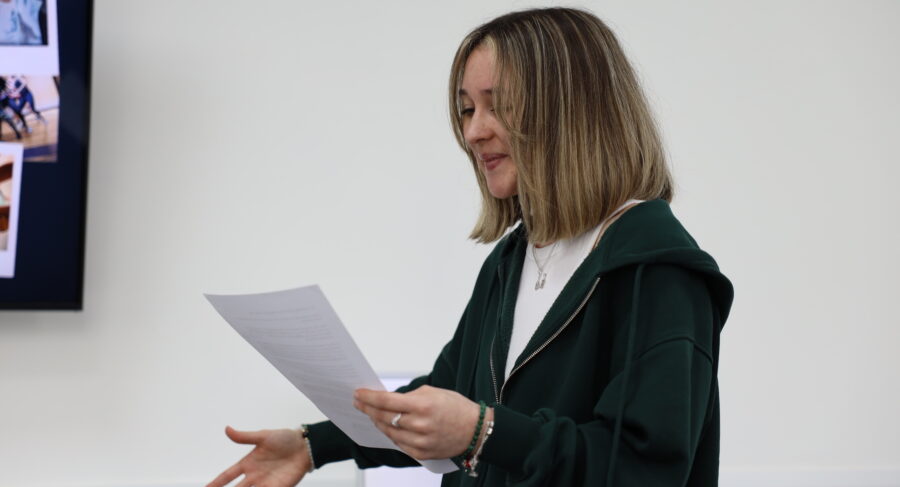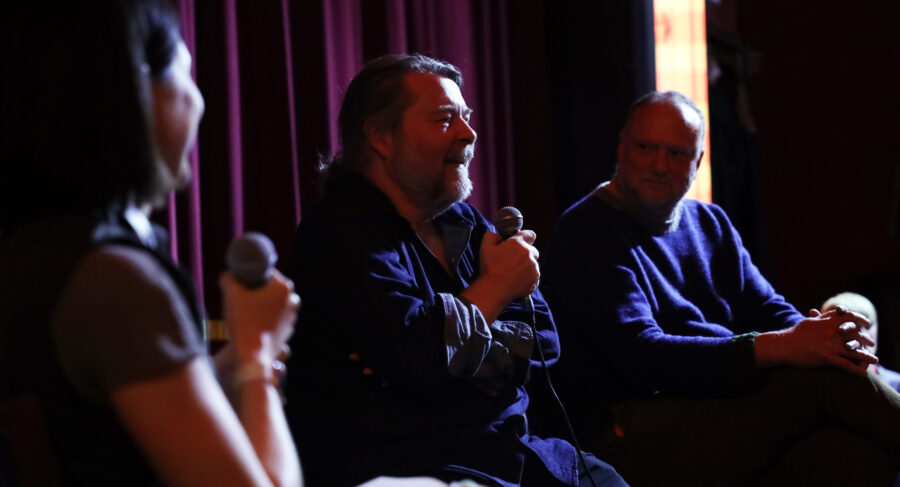Spotlight On: Dr. Amrinder Romana (Head of School, MetStudios London)
By MetStudios London
11 March 2025
With over 20 years in animation, game development, and immersive media, Dr Amrinder Singh Romana knows everything there is to know about digital storytelling.
As Head of School at MetStudios London, Dr Singh Romana is now on a mission to ignite the imaginations of the next generation of storytellers, and to equip them with the skills and confidence to create the future of the digital arts.
We sat down with Amrinder to talk about his career journey, his plans for MetStudios, and what excites him most about the future of storytelling.
Tell us a little about your background – and what drew you to the intersection of storytelling, technology, and education?
My journey began with a fascination with digital animation and interactive experiences. This led me to develop my skills in photorealistic facial animation, procedural storytelling, motion capture, and real-time virtual production.
I have dedicated my career to exploring and redefining how we create, experience, and teach digital narratives. I’ve worked in animation, VFX, game design, and immersive media, and have always been keenly interested in projects that push creative and technological boundaries. That’s why academia feels like such a natural home for me.
As a lecturer, I’ve led a range of undergraduate and postgraduate programmes, and am really excited to bring what I’ve learnt to MetStudios. I’m looking forward to fostering innovation with our students and making sure they’re empowered to push those boundaries. To do so, you need to master technical skills, of course, but developing that creative firepower is what will help them thrive as they go on to build the future landscape of digital arts.
How do you see your research influencing your approach as Head of School at MetStudios London?
A lot of my research has focused on how emerging technologies like AI, real-time engines, and procedural storytelling are transforming the way narratives are created and experienced. So, bringing that to MetStudios, I want our students to see technology not just as a tool, but as a creative partner. I want them to learn how to work with these tools but, ultimately, they will be the ones shaping the innovations of the future.
That means rethinking the typical model of education, which is something MetStudios is doing really well. Students work on projects that reflect the latest developments in storytelling technology, and they’ll have the opportunity to work in a cross-disciplinary way beyond their core focus so they can understand a wide range of storytelling formats.
The future of storytelling is more than mastering what exists today – it’s about inventing what comes next.
What excites you most about joining MetStudios, and how do you see the London campus evolving under your leadership?
MetStudios has the potential to become a global leader in digital storytelling innovation. London is already at the forefront of the screen and digital industries, so we’re perfectly positioned right at the heart of this big creative revolution.
My vision for the London campus is that it will evolve into a world-class hub where students are actively creating the future of these industries. By partnering with major and indie studios and tech leaders, our students will get access to live projects, industry mentorship, and get to collaborate beyond the school. I see cross-disciplinary collaboration as being so vital, so I want our students to knock down those barriers between film, games, animation, and other emerging tech so they have multi-dimensional tools to set them apart.
It’s also really important that our curricula reflect the latest advancements, so our courses will be constantly evolving to incorporate these developments as they come up, which seems to be happening ever-faster these days!
MetStudios is all about blending creativity with industry-ready skills. How do you plan to ensure that students graduate with both strong storytelling abilities and technical expertise?
Success in the creative industries isn’t about mastering software or having innate creative talent – it’s actually about a fusion of both. That’s why I’ll be ensuring all students graduate with both exceptional storytelling abilities and technical expertise; they’ll be trained to enhance narrative impact, not just execute tasks.
The best professionals in the industry aren’t just technically skilled; they are critical thinkers and innovators who are willing and able to adapt. I’ll be looking to hone that problem solving mindset in our students.
The creative industries are evolving rapidly, with AI, virtual production, and interactive media reshaping storytelling. How should students and educators adapt to these changes?
There’s no doubt that we’re witnessing a seismic shift in how stories are created and experienced. These technologies are more than emerging trends – they’re actively redefining the industry. Students and educators will need adaptability and to be fearlessly experimental in how they approach their work.
I’d also heavily emphasise that continuous learning throughout your career is more important than it’s ever been, so it’s crucial to have your ear to the ground and stay up to date with developments and trends if you’re going to succeed.
Do you see any trends in interactive storytelling or digital arts that you think aspiring creatives should be paying attention to?
The key one, of course, is AI. Sure, AI is a tool for automation, but more importantly for us, it’s a creative partner, which is actually enabling much richer, more responsive narratives. Those who actively embrace AI as part of the creative process will be the ones that are truly able to innovate in the changing landscape.
Equally, immersive tech like VR, AR, and mixed reality are gaining traction. The audiences and players of the future will expect more interactivity and immersion so, though these types of experiences aren’t yet the norm, we can fully expect wider adoption in the coming years. Again, staying on top of developments and learning how to create in immersive media is going to be key.
The stories we tell through games and film are no longer confined to a single medium. Cross-media and transmedia narratives are becoming commonplace; the most engaging narratives we’re seeing at the moment are ones that extend across games, film, social media, and immersive platforms (like VR). Audiences want to interact with content in a variety of ways, so students should be thinking beyond traditional formats.
Personalisation and adaptive narratives are also on the rise. Content is increasingly being designed to respond to user behaviour, emotions, and preferences so stories become more dynamic and evolving in nature. This is a really exciting and interesting area for storytellers, as we start to redefine how audiences engage with content. Storytelling is becoming this living, evolving interaction much more than a static experience. It’s going to be fun to explore all that!
What’s one piece of advice that’s shaped your own career, and what advice would you give to those just starting out?
One piece of advice that’s stuck with me is: Be the creator of your own opportunities.
The creative industries are fast-paced and competitive, as well as being constantly evolving. So waiting for the perfect moment or the right opportunity will just hold you back. Whatever you do, don’t wait for someone else to give you permission: create. Take risks, experiment, push boundaries – make things happen, even if the road ahead isn’t yet clear.
Take initiative. If you want to work on a project, start one. If you’re passionate about a new technique, learn it. If you want to collaborate, reach out. You’ve got to be bold and self-driven with your creativity and with putting yourself out there.
Remember, every mistake and every challenge is part of the journey. So what if your idea was rejected? Bounce back, adapt, and try again. Creativity ultimately thrives on iteration, so going back to the drawing board, as it were, is all part of the process. Nothing is a failure – it’s a learning experience.
You also cannot rely on your portfolio alone to get you work, no matter how impressive it is. This industry is about building relationships and making connections that will open doors for you, much more so than your skill or talent alone. Be sure to surround yourself with likeminded creatives and mentors, and make those industry connections.
Some of the best career paths in the creative industries haven’t even been invented yet. As the industry landscape evolves and new technologies come to the fore, new roles will come up. This is another reason to be adaptable and to keep learning and exploring different disciplines. Being open rather than fixing your attention on one destination will land you with more interesting opportunities.


